WordPress has been the most popular content management system in the world for years, but it's not the only one. Despite its popularity, WordPress is not without its share of problems. It’s slow, bloated, and has a steep learning curve.
The constant release of new features and updates can make it difficult to stay current with the latest version of WordPress. Additionally, because it is so popular, WordPress websites are often targeted by hackers.
If you are unhappy with WordPress or feel like you are outgrowing the CMS, then it may be worth considering a change. However, it is important to research other WordPress alternative open source CMS before making a decision, as you will want to choose a system that meets your specific needs.
Joomla and Drupal are both good choices for newbie users who want to create a website without any programming experience. However, it is important to note that these CMS systems can be more complex than WordPress, so you may need to invest more time in learning how to use them.
If you find WordPress too complicated, then you might find Joomla and Drupal even more challenging to use. This is why we suggest considering other CMS options, such as ProcessWire or Ghost, which are easier to use and more user-friendly. In this article, we're going to take a look at some of the different options that are available for you.
What makes WordPress such a popular platform?
Before we suggest you some alternatives, let's explain in a few paragraphs the history of WordPress and why it became so popular. WordPress was originally created in 2003 as a personal blogging tool by developer Matt Mullenweg. The open-source software quickly gained popularity due to its simple interface and flexibility. WordPress soon became the most popular blogging platform on the web and began to be used for other types of websites as well.
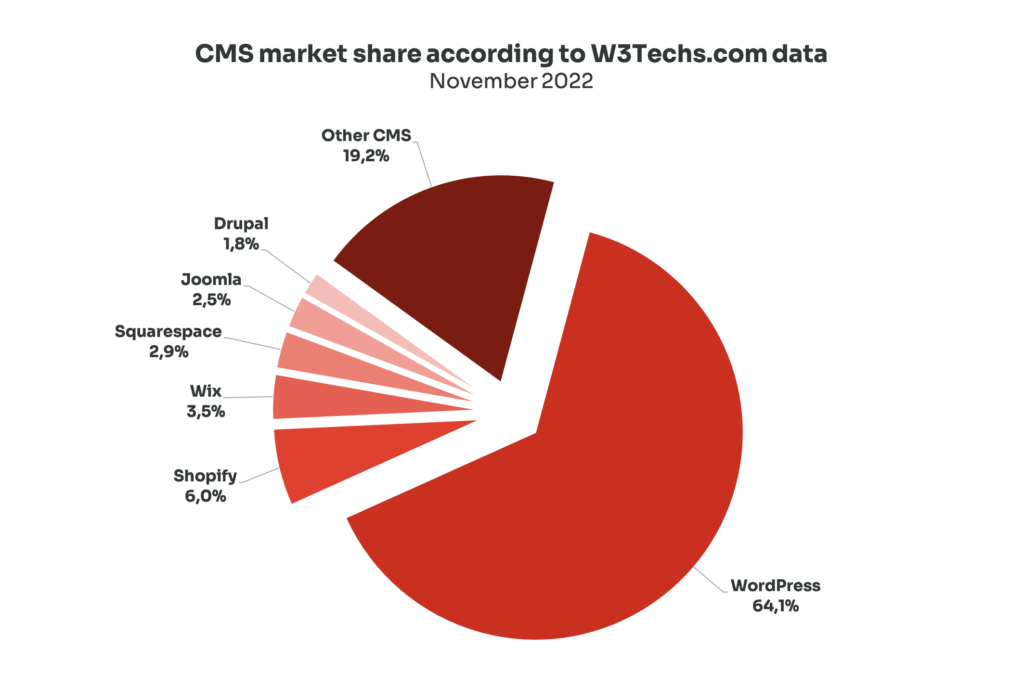
Today, WordPress powers millions of websites and is one of the most popular content management systems in the world. One of the main reasons for WordPress' popularity is its ease of use - even people with no programming experience can create a professional-looking website with WordPress. Additionally, there is a large community of developers who create themes, plugins, and add-ons for WordPress, which allows users to customize their website to meet their specific needs.
3 WordPress Alternatives
If you're not a fan of WordPress, there are plenty of other options to choose from. As was just mentioned, rather than concentrating on Joomla and Drupal, we will look into other potential alternatives.
If you want to try anything other than WordPress, here are some of the finest WordPress alternatives. The three options presented here each have their own set of advantages and disadvantages, so you may pick the one that works best for you.
- ClassicPress - free less-bloated fork of WordPress
- ProcessWire - open-source PHP-based CMS
- Ghost - easy to use and configure blogging platform
ClassicPress
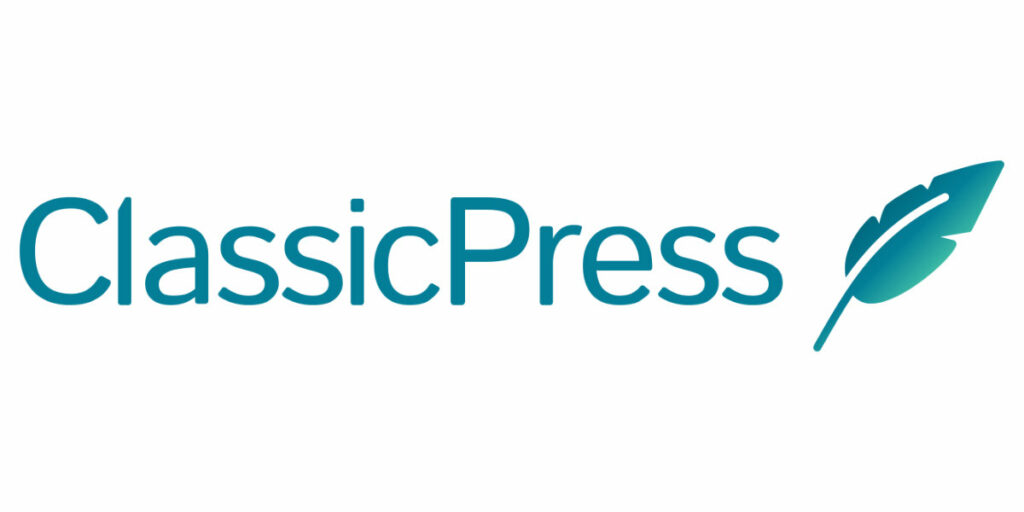
ClassicPress is a free, open-source, self-hosted WordPress fork that includes a lot of the features that WordPress is known for. It is easy to install, easy to use and offers many of the same WordPress features that have made it so popular. ClassicPress is a faster, more lightweight and customizable version of WordPress, which makes it perfect for those who want to create a simple website or blog without all the bells and whistles.
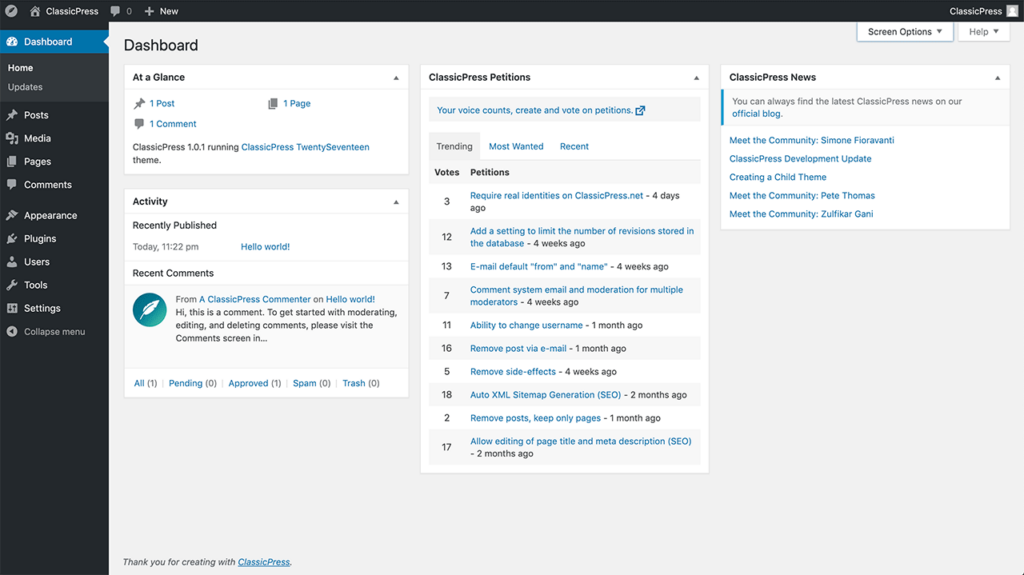
What are the features of ClassicPress?
ClassicPress is a WordPress fork that includes many features that aren't available in other WordPress alternatives. There are several features of ClassicPress that make it an attractive option for businesses and website owners.
First, ClassicPress is built on top of the WordPress codebase, so it is compatible with many existing WordPress plugins and themes. This means that businesses can continue to use the same tools they are already familiar with, without having to learn new software.
Second, ClassicPress includes a number of security enhancements over WordPress. The team behind ClassicPress has made it their mission to create a secure, stable, and fast version of WordPress. One of the ways they've accomplished this is by stripping away all the code that isn't absolutely necessary. This means that there are fewer opportunities for hackers to exploit vulnerabilities. In addition, the ClassicPress team conducts regular security audits and works closely with security experts to ensure that their platform is as secure as possible.
Finally, ClassicPress offers a number of performance improvements over WordPress. For example, pages load faster due to optimized code and reduced database queries. This is especially important for businesses who want their websites to be as fast and responsive as possible. Overall, ClassicPress is a great option for businesses or website owners who want to stay on the WordPress platform but need enhanced security and performance.
How does ClassicPress compare to WordPress?
There is no easy answer when it comes to deciding if ClassicPress is right for your website. Security, plugins availability and performance are all important factors to consider. If your website is primarily for personal use, then ClassicPress may be a good fit. However, if you are running a business or eCommerce website, you may want to consider other options. WordPress is still the most popular content management system and has a larger community of developers and support available.
As for now there are over 70 WordPress plugins that are declared to be fully compatible with ClassicPress, but the number is constantly growing. As for now there are over 70 WordPress plugins that are declared to be fully compatible with ClassicPress, but the number is constantly growing. Some of the most popular plugins include Jetpack, Yoast SEO, and Gravity Forms.
ProcessWire

ProcessWire is a content management system (CMS) that was developed by Ryan Cramer in 2003. Before ProcessWire, Cramer had created a previous CMS called Dictator CMS. However, Cramer eventually realized that the limitations of Dictator CMS were holding it back, and he decided to create a new CMS from scratch. This new CMS was ProcessWire, which incorporated many of the ideas and concepts that Cramer had developed while working on Dictator CMS. However, ProcessWire was a completely new platform that was much more flexible and extensible than Dictator CMS.
ProcessWire provides a robust and powerful web-development framework that is capable of doing complex things with a simple interface. It is a great alternative to WordPress, and is a powerful framework for building websites. ProcessWire is different from other frameworks in that it is not a CMS but rather a web-development framework. It is built with a modular approach to web development, meaning that you can add, remove, or replace as many functions as needed. Simply speaking, it is a full-fledged web framework that provides a complete set of tools for building websites.
One of the key reasons for ProcessWire's popularity is its flexibility and extensibility. The CMS is built on a strong foundation of modular, reusable code, which makes it easy to customize and extend to meet the unique needs of each project. ProcessWire also focuses on simplicity and clarity, with an intuitive user interface and clear, concise documentation. This makes it easy for developers to get up and running with the platform, and for end users to manage their websites without needing technical expertise.
In addition to its core features, ProcessWire also offers a range of add-on modules and tools that can be used to add extra functionality to your website. This allows developers to tailor the platform to the specific needs of their projects, and to easily integrate it with other systems and services. Overall, ProcessWire is a powerful and user-friendly CMS that offers a high degree of flexibility and control over your website.
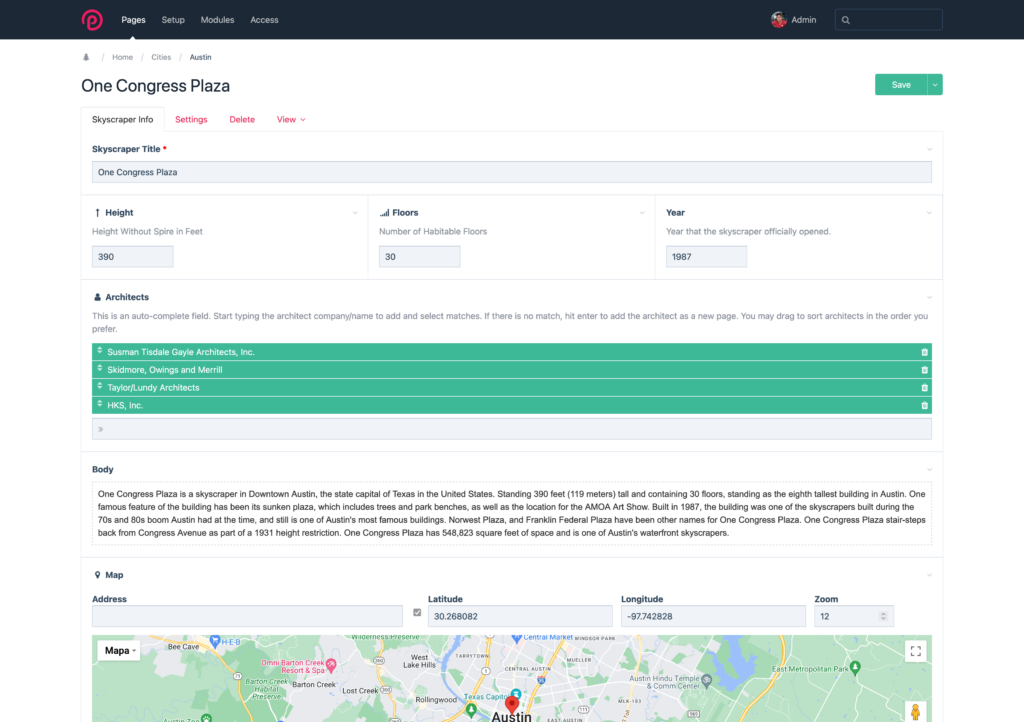
How does ProcessWire compare to WordPress?
ProcessWire and WordPress are both popular content management systems (CMS), but they have some key differences. One of the main differences is that ProcessWire is designed to be more flexible and customizable than WordPress. ProcessWire is built on a modular, reusable codebase, which makes it easy to tailor to the specific needs of each project. This allows developers to create unique and powerful websites without needing to write a lot of custom code.
In contrast, WordPress is more focused on providing a set of pre-built features and functionality that users can easily access and configure. This makes it faster and easier to get started with WordPress, but it also means that there is less flexibility and control over the final result.
Another key difference between the two CMS platforms is the target audience. ProcessWire is primarily aimed at web developers and technical users, while WordPress is more geared towards non-technical users who want an easy-to-use platform for building and managing websites.
Overall, the choice between ProcessWire and WordPress will depend on your specific needs and requirements. If you need a highly customizable and flexible CMS, ProcessWire may be the better option. But if you want a more user-friendly platform that is easy to set up and manage, WordPress may be a better fit.
Ghost

Ghost is a content management system (CMS) that was first released in 2013. The CMS was created by John O'Nolan, who was a former WordPress employee and blogger. O'Nolan was frustrated with the limitations of WordPress, particularly with regards to its focus on providing a wide range of features and functionality that could be difficult for new users to navigate.
O'Nolan's vision for Ghost was to create a CMS that was simpler, more focused, and more user-friendly than WordPress. Ghost was designed to provide just the essential features and tools that users need to create and manage their websites, without overwhelming them with unnecessary options and settings. This makes Ghost a good choice for users who are new to CMS platforms, or who don't want to be bogged down by complex menus and settings.
In addition to its simplicity and user-friendliness, Ghost is also known for its modern and clean design. The platform has a minimalist user interface that is easy on the eyes, and that allows users to focus on their content and their audience. In addition to its flexibility, Ghost provides a wide variety of customization options that allow users to give their websites a distinct and personal feel.
Ghost vs WordPress: Comparing the Key Features and Differences
Ghost has a minimalist and modern design, with a clean and uncluttered user interface. This makes it easy for users to focus on their content and their audience. In contrast, WordPress has a more traditional and cluttered design, with a larger number of menus and settings that users need to navigate. To this end, Ghost is designed to be simple, focused, and user-friendly, with just the essential features and tools that users need to create and manage their websites. This makes Ghost a good choice for users who are looking for a straightforward and intuitive CMS.
In contrast, WordPress is more geared towards users who are comfortable with technology and have a background in web development. WordPress offers a wide range of features and functionality, which can be overwhelming for new users, but which can also be useful for more experienced users who want more control and flexibility over their website. WordPress also has a larger community of developers and users, which means that there is more support available for those who need help with the platform.
Overall, Ghost is a popular alternative to WordPress for users who are looking for a simpler and more user-friendly CMS platform. While it may not have all of the features and functionality of WordPress, Ghost offers a more streamlined and focused experience that is ideal for new users.
What does Ghost have that WordPress doesn't?
One of the key differences between WordPress and Ghost CMS is the cost of using the platform. WordPress is a free and open-source CMS, which means that users can download and use it without paying any fees. In contrast, Ghost CMS is a paid platform, with users required to pay a subscription fee in order to use the platform.
However, it's important to note that Ghost CMS includes hosting as part of its subscription fee. This means that users do not need to pay for separate hosting in order to use Ghost, unlike with WordPress, where users must either host the platform themselves or pay for a hosting service.
For many users, the inclusion of hosting with Ghost CMS makes it a more cost-effective option than WordPress, even though it requires a subscription fee. This is because users don't need to worry about finding and setting up a hosting provider, and they can be confident that their website will be hosted on high-quality, reliable servers.
The drawbacks of Ghost
Ghost is a CMS that does not support plugins or additional modules in the traditional sense. Unlike some other CMS platforms, such as WordPress, Ghost does not have a system for installing and managing third-party plugins or modules.
However, Ghost does offer a way for developers to extend the platform's functionality through custom code. Ghost uses the Handlebars templating language, which allows developers to create custom templates and add custom logic to their websites. This can be used to create custom functionality, such as custom post types or custom fields, without needing to install additional plugins or modules.
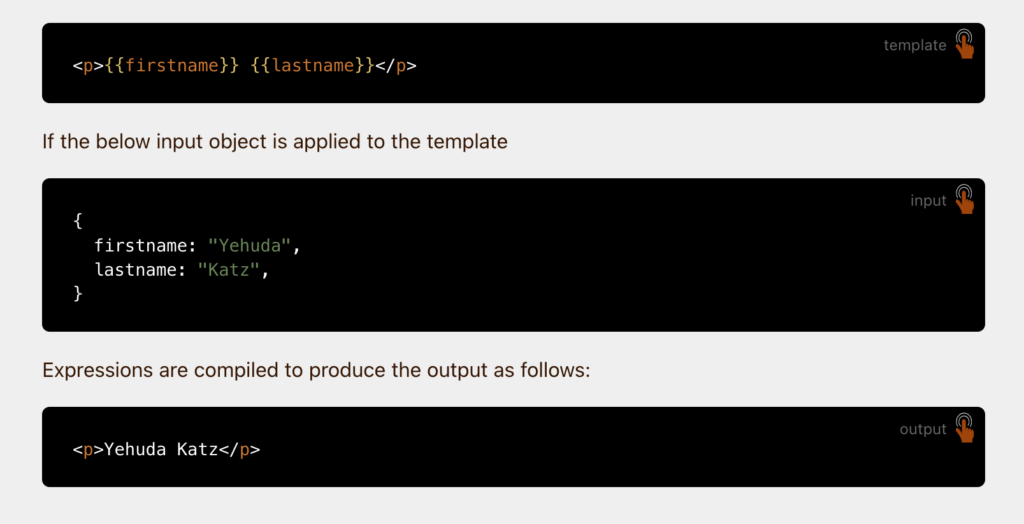
In addition to custom code, Ghost also offers a range of pre-built integrations and integrations with other platforms and services. These integrations can be used to add extra functionality to your Ghost website, such as social media sharing or email marketing.
Summary
In this article, we have explored three CMS alternatives to WordPress: ClassicPress, ProcessWire, and Ghost. Each of these platforms offers its own unique features and benefits, and they can be a good fit for different types of users and websites.
ClassicPress is a fork of WordPress that focuses on providing a more stable and secure platform for users. It includes many of the same features and functionality as WordPress, but it does not include the controversial Gutenberg editor, and it has a more conservative approach to updates and new features.
ProcessWire is a CMS that is known for its flexibility and extensibility. It uses a unique field-based approach to content management, which allows users to create custom content types and fields that are tailored to their specific needs. ProcessWire also has a large and active community of developers and users, which provides support and resources for those who want to use the platform.
Ghost is a CMS that is designed to be simple, focused, and user-friendly. It includes just the essential features and tools that users need to create and manage their websites, without overwhelming them with unnecessary options and settings. Ghost is a good choice for users who are new to CMS platforms, or who want a more streamlined and intuitive experience.
Overall, these three CMS alternatives to WordPress offer different advantages and disadvantages, and the best choice will depend on the specific needs and preferences of the user. ClassicPress is a good option for users who want a more stable and secure platform, ProcessWire is a good choice for users who want a flexible and extensible platform, and Ghost is a good choice for users who want a simple and user-friendly platform.
Leave a Reply